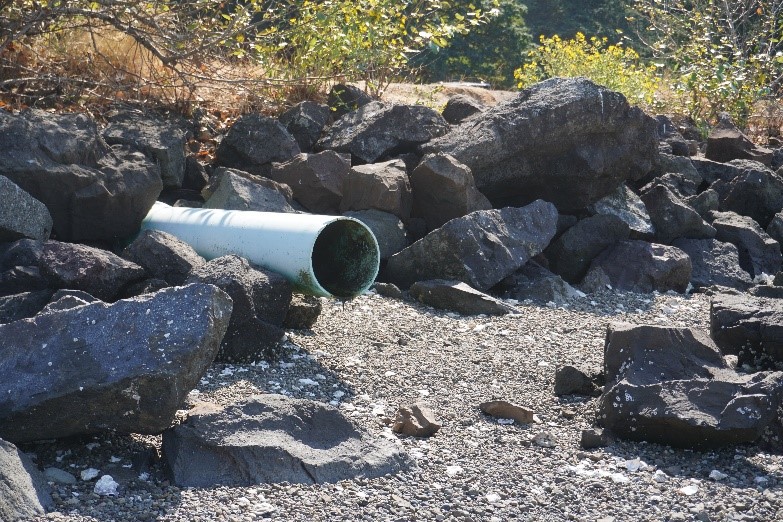
This summer we experienced glorious sunny weather in Washington. Hot and dry conditions made for perfect beach days, but the rainy season is upon us. After a heavy rainfall, bacteria levels in the water could potentially rise making the water unsafe for activities like kayaking and swimming. When a sun break occurs and adventurous beachgoers head back to the beach, be aware of the potential health risks associated with large rains and take precaution.
Watch out for runoff
Water from heavy rainfall runs off the land and into nearby lakes, rivers, and saltwater beaches. Waste from humans, pets, and wildlife can easily be washed downstream. Heavy rains can also cause sewage systems to overflow and discharge untreated sewage into nearby water bodies. This runoff and overflow can carry fecal bacteria found in human and animal poop, which can make people sick.
Contact with fecal contaminated water can cause gastrointestinal issues, skin rashes, wound infections, upper respiratory infections, and other illnesses.
Take precaution after heavy rainfall
Protect yourself and your family from getting sick.
- Reduce contact with fresh or marine water after a heavy rain.
- Avoid water recreation for at least 24 hours after heavy rainfall.
- Avoid areas where you see pipes or streams that drain directly to the beach.
What you can do
The BEACH Program does not sample for bacteria in the fall and winter, so if you do find yourself at the beach, it is always a good idea to follow these swimming tips:
- Shower after swimming.
- Wash your hands before eating if you’ve been in contact with the water or sand.
Learn more:
- Visit Surfrider’s Blue Water Task Force data page to find local data.
- Help keep your beach safe to prevent future advisories and closures.
Follow our Fecal Matters blog or join our email notification list for beach bacteria news and information. We are also on Twitter and Facebook.
Contact
Heather Gibbs
BEACH Program Coordinator
360-480-4868
heather.gibbs@ecy.wa.gov

